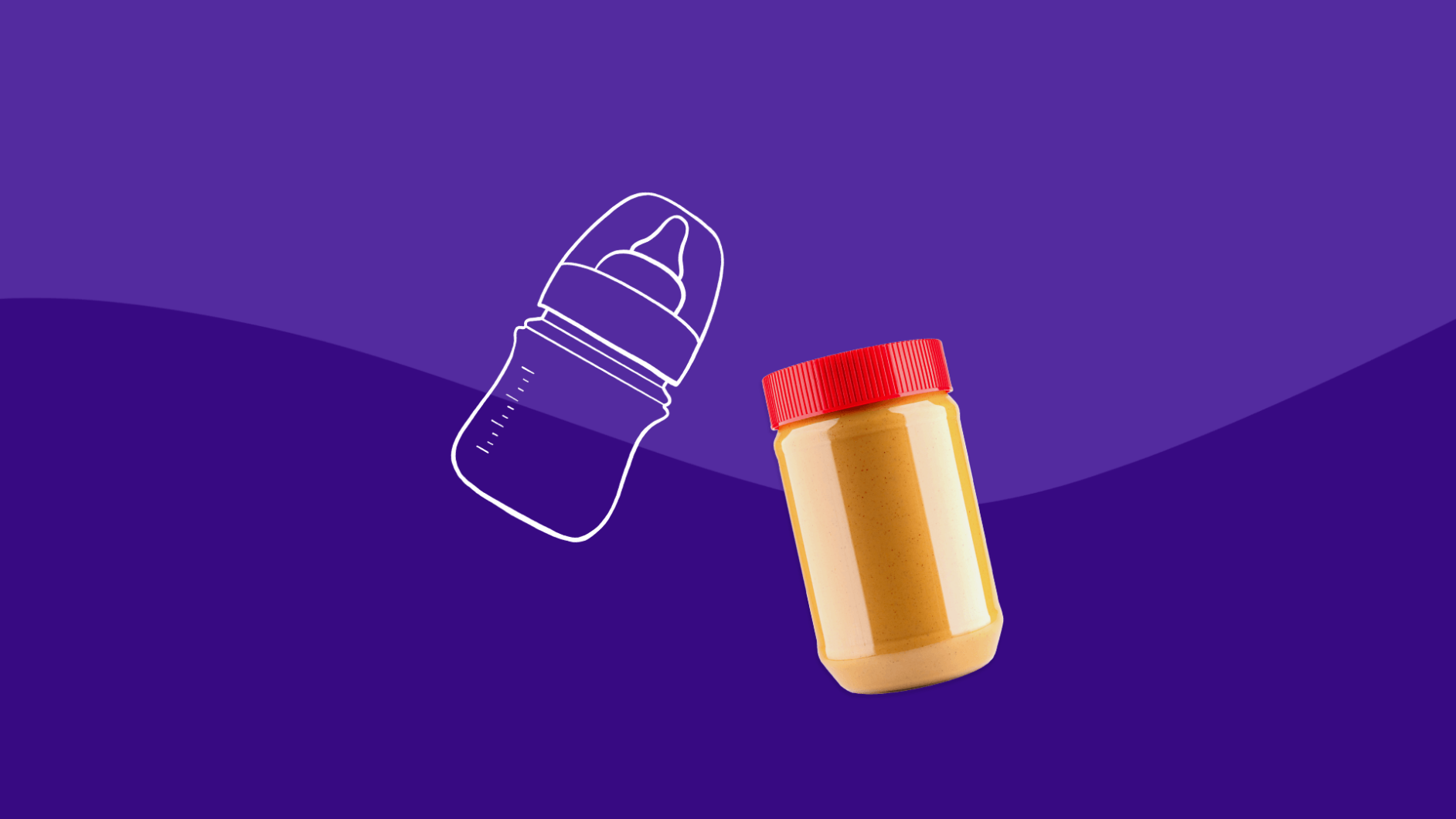If you ever fretted about whether it was too soon to give peanut butter to your baby for the first time, you’re not alone. Many new parents have a little anxiety about introducing new foods to their infants—especially foods that are known to cause allergic reactions.
But now parents have some new evidence-based recommendations to help them out.
Every few years, the U.S. Department of Health and Human Services (HHS) and the U.S. Department of Agriculture (USDA) release a set of dietary guidelines that are intended to help people eat healthier and live longer. The newest set, the Dietary Guidelines for Americans 2020-2025, was published in late December 2020.
The new Dietary Guidelines for Americans 2020-2025
This year, for the first time, the guidelines include recommendations for babies and toddlers. They emphasize the importance of avoiding any added sugar before age two and preparing a variety of nutrient-dense foods for children—including foods rich in iron and zinc, like eggs, meat, and poultry.
And what’s more, the guidelines also specifically address an issue of great concern to all parents of very young children: when and how to introduce allergenic foods to reduce the likelihood of developing a food allergy.
“They recommend that they should be introduced when other complementary foods are introduced to an infant’s diet,” explains Yan Yan, MD, a pediatrician and allergist-immunologist with Columbia Allergy in California.
According to the nonprofit organization Food Allergy Research & Education (FARE ), nine foods are responsible for most allergic reactions:
- Milk
- Eggs
- Peanuts
- Soy
- Wheat
- Fish
- Tree nuts
- Shellfish
- Sesame
In the past, medical experts urged caution about introducing those foods to babies and suggested waiting, out of the concern that it might be too soon. Previously, the American Academy of Pediatrics recommended waiting until 2 or 3 years old. But it was more of a common sense approach than one grounded by evidence, notes Sanjeev Jain, MD, Ph.D., allergist and immunologist with Columbia Allergy.
Now, the guidelines recommend that you start including those potentially allergenic foods as you start to introduce other foods to your curious baby, rather than holding off until they’re older.
RELATED: When to allergy test your child
When to introduce potentially allergenic foods
This new guidance may be a little nerve-wracking for parents. They may still be hesitant about introducing some foods at earlier ages, out of fear that the new food might cause an allergic reaction in their child. But, there’s been a paradigm shift in recent years with regard to treating and preventing food allergies, according to Dr. Jain, and it’s shifted in favor of earlier introduction.
“The immune system in early childhood is very moldable,” Dr. Jain says. “You can mold that immune system in the right direction. We can mold it away from allergies early in life.”
One thing that might assuage some of their anxiety is the knowledge that the new food allergy guidelines are based on research, like the Learning Early About Peanut Allergy (LEAP) study, which found that early introduction of peanut protein to children at high risk for peanut allergy significantly decreased the development of this particular allergy. (If you’re wondering what “early” means, the LEAP study included infants between the ages of 4 and 11 months.)
The data supports introducing peanut between 4 and 6 months of age as a way to improve the chances of avoiding a peanut allergy later in life, notes Dr. Jain. “But that doesn’t mean it has to be the first allergenic food that you introduce,” he adds.
No matter when you begin to introduce potentially allergenic foods, you still want to be cautious and watch your child for any signs of a reaction. You would want to start with a very small amount of the food, and then go from there. “I would be very cautious and not give a big serving on day one,” Dr. Jain says.
Dr. Yan also emphasizes that the food allergy guidelines recommend avoiding added sugars when introducing new foods, too. For example, if you choose peanut butter, look for a version without any added sugars.
And if your baby is already 8 or 9 months or a year old, it’s okay to go ahead and introduce those potentially allergenic foods, says Dr. Jain. Just do them one at a time and watch your child carefully for any reactions.











